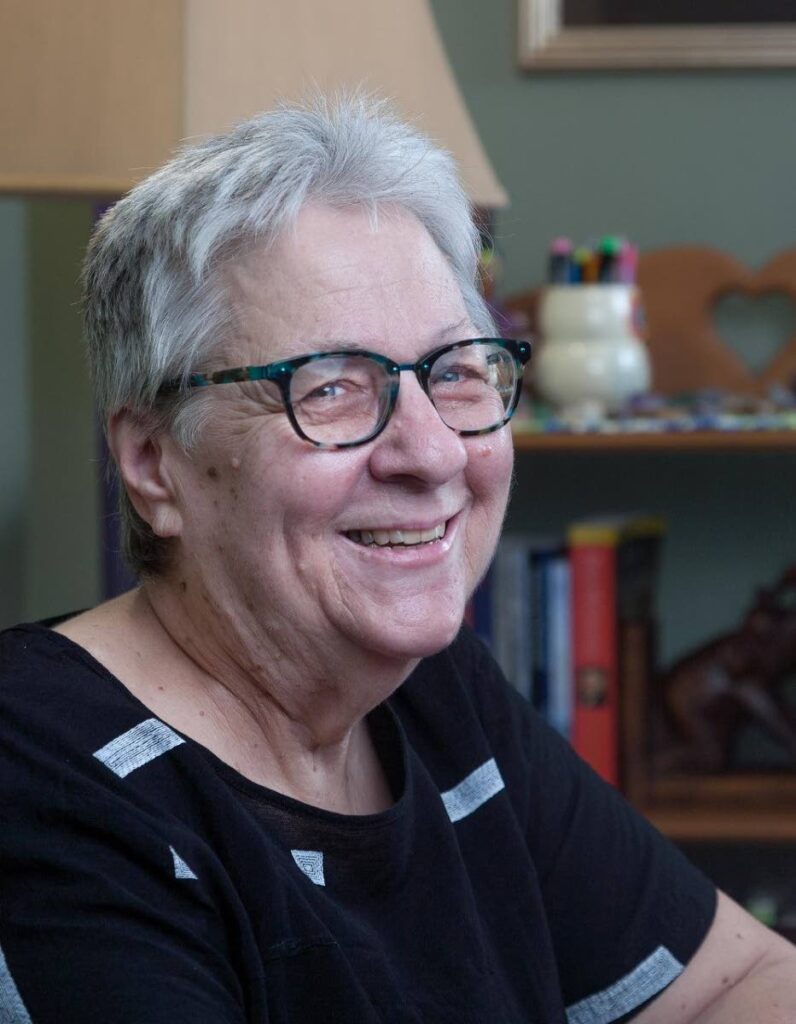The girls with the gold gun earrings

DEBBIE JACOB
THE GIRLS with the gold gun earrings have haunted me ever since I spotted them at a Youth Training Centre (YTC) event 12 years ago. The teenagers, dressed casually in jeans and neat, simple blouses had come to flirt with their former boyfriends, and they only stood out because of their earrings.
On that day, it hit me that the culture of crime is not some dark place only inhabited by males. Girls play a role in this violent world, although it’s only lately we see stories in the media where parents have been speaking out about the problem.
If we want to understand crime and address the problem, then we must understand girls’ role in it as well. There’s no simple explanation for girls’ attraction to “bad” boys. All kinds of girls venture into this dark, unsettling world: girls who believe they can change or reform a troubled boy; girls who are adrenalin junkies, and those who my boys in YTC used to describe as gold diggers.
Although those boys took chances with my teaching, they balked at the idea of writing poetry in English class because they didn’t consider it masculine.
“Girls like to get poems from boys,” I said.
They laughed. “No, girls like things – expensive things.”
No teenagers in YTC ever told me they had girlfriends who encouraged them to get their education; few had girlfriends who discouraged them from carrying guns. What is the basis for these dysfunctional teenage relationships rooted in poverty and irrelevant education?
There are no easy answers, but the situation requires us, as a society, to dig deeper in order to understand the relationships that define the culture of crime – not so we can blame anyone, but so we can figure out the needs of these teenagers and educate them to choose better, safer, happier and more confident paths in life.
Now that the Government says it is allocating more money to education – especially to help those at-risk students who fell out of the academic loop during the pandemic – I hope educators will address the real needs of these students academically, personally and socially so they don’t fall through the cracks and tumble into the culture of crime.
We have done a poor job of educating teenagers about healthy relationships – especially those from violent homes and neighbourhoods. Clearly, we haven’t taught teenagers that they have a right to a secure future. Teens need to learn how to measure the consequences of dangerous relationships.
No CXC pass is worth more than giving these children the self-confidence they need to navigate life. Don’t tell me this is just a parent’s job. Parents who came from violent, broken homes themselves don’t have the knowledge to break the cycle of abuse and poverty that often leads to crime.
We live in a world where empathy skills are at an all-time low and instant, self-gratification is off the charts; where young people need to feel protected, but aren’t sure how this looks or feels in the culture of crime where education is irrelevant and police or most of the adults around them can’t be trusted.
The mission to deal with crime and offer relevant education starts by listening – really listening – to the needs of our teenagers. What would make school an interesting and worthwhile place for them to want to go to every day? What would make them value their education and their lives or give them hope?
Next, we need to address reading and stop pretending any real education can take place if students can’t read. We have to tackle reading issues in exciting, innovative ways for remedial students by finding relevant low-level/high-interest books that help them to understand their thoughts, feelings and needs are shared by others. In prison, I saw how reading built confidence and taught teenagers there are feelings other than anger. Confidence soared as their reading improved.
There are so many excellent books out there that can become invaluable teaching tools and form the foundation for learning in school. I would be happy to provide lists of such books at all reading levels so we can improve the official school reading lists.
Those of us who have been fortunate enough to have parents, teachers and other adults as positive role models take our knowledge and privilege for granted. I can’t help but wonder about the girls with the gold gun earrings and those teenagers lost in the violence that increasingly defines this country. I know if we want to fix crime, we need to address their needs and their relationships.


Comments
"The girls with the gold gun earrings"